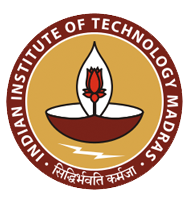15 April - Blog
In the world of deep tech innovation, the transition from lab-based research to a commercially viable product is one of the most challenging yet crucial phases for startups. Moving from Technology Readiness Level (TRL) 3 to TRL 6 can often make or break a promising deep-tech company. Recognizing this challenge, the GDC has designed the I-GNITE Program, an initiative specifically aimed at deep-tech startups that have proven their technology in the lab but are still struggling to scale it to real-world applications. The program’s purpose is clear: to bridge the gap between early-stage innovation and successful commercialization. It helps these startups gain the necessary business acumen and managerial expertise to navigate the complexities of scaling their solutions to meet real-world demands.
The I-GNITE Program focuses exclusively on startups in the TRL 3-6 stage, typically emerging from academic settings with proven technologies but lacking the necessary business expertise to scale them effectively. Led by researchers and technical experts, these startups often face challenges in navigating the complexities of commercialization due to a lack of entrepreneurial drive and managerial skills. Recognizing this gap, the program equips founders with the business training and tools needed to transition their innovations from the lab to the market. In India’s academic ecosystem, where there is a significant challenge in cultivating an innovation culture, the I-GNITE Program addresses this by helping academic researchers-turned-entrepreneurs gain the skills to scale their solutions and become successful market players. Many deep-tech startups, despite their technical advancements, struggle with product-market fit, organizational growth, and securing funding. The I-GNITE Program directly addresses these challenges by providing startups with the managerial capabilities necessary to refine their business models, develop go-to-market strategies, and become investment-ready. By the end of the program, these startups are not only technically sound but also fully prepared to tackle the commercial hurdles of scaling their technology.
The I-GNITE Program is rigorous, starting with a pre-I-GNITE phase, which serves as a bootcamp to ensure that only startups meeting the essential prerequisites are admitted. GDC insists on three key criteria before a startup can join the program: the technology must be proven at the lab level, the founding team must be in place and have completed legal formalities, and the startup must have identified a real problem to solve in the marketplace, with evidence of customer demand. For startups that do not meet one or more of these criteria, GDC works closely with them during the pre-I-GNITE phase to help them become eligible for the program.
Once in the I-GNITE Program, startups undergo a carefully structured and intensive curriculum focused on scaling their technology and business. The program consists of five core modules that are critical for the success of any deep-tech startup: scaling technology to work in real-world conditions or pilot projects, testing the MVP (Minimum Viable Product) and refining the value proposition, estimating the costs and revenues of scaling, formulating a comprehensive business model, and designing the organization and governance structure. The aim is to equip startups with a holistic view of both the technical and business aspects of scaling their solutions.
The program is cohort-based, where a select group of startups enters the program together, though their paths may differ based on their unique needs. Over the course of 6-12 months, the startups engage closely with GDC experts and business mentors, gradually completing each of the modules. The goal is to make these startups investment-ready, preparing them for external funding opportunities and partnerships. By the end of the program, the startups are stronger, more capable, and ready to scale their operations.
Industry-academia collaborations are crucial in bridging the gap between breakthrough research and practical, market-ready solutions. For corporates, the I-GNITE Program offers multiple avenues to engage with and benefit from these emerging startups. It provides a platform to solve specific industry challenges, access innovative technologies, and foster long-term growth by investing in high-potential deep-tech ventures. Moreover, corporates can also benefit from direct collaborations with these startups, whether it’s through joint development, co-innovation, or investment opportunities. The program creates a win-win scenario where corporates not only solve immediate business problems but also contribute to the broader innovation ecosystem.
The I-GNITE Program has already seen success with previous cohorts, including partnerships with organizations such as TDK Corporation and ArcelorMittal, further proving its effectiveness in helping startups grow and become ready for the market. These collaborations highlight the program’s potential for driving real-world impact, making it an essential part of the innovation strategy for large organizations seeking to stay ahead of the curve in their industries.

Winners of the XCarb® India Accelerator Programme at the ArcelorMittal Nippon Steel Hazira Plant, Gujarat.

TiiC Accelerator Program participants in action during immersive in-person sessions at IIT Madras.
As deep-tech innovation continues to grow in importance, the I-GNITE Program represents a crucial stepping stone for startups looking to bring their technologies to market. For corporates and other stakeholders, it offers a pathway to engage with emerging solutions that can solve real-world problems and drive transformative change. By supporting these startups, corporates can not only help shape the future of industries but also stay at the forefront of technological advancements, ensuring long-term growth and success.
Recent Posts
post those are very recent in Dot
Category
browse all your favourite categories
